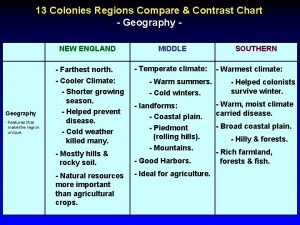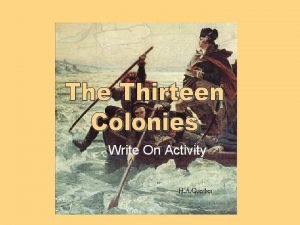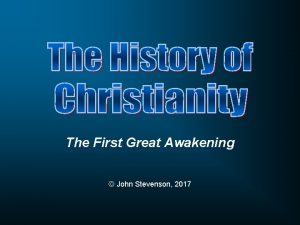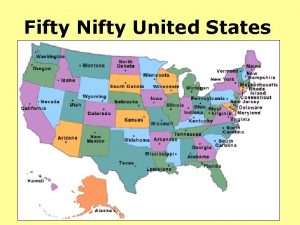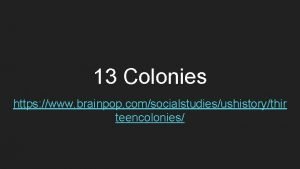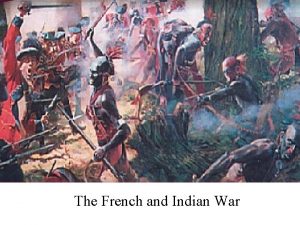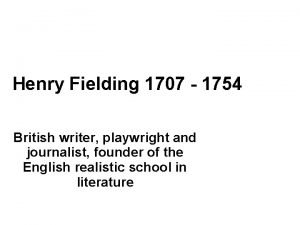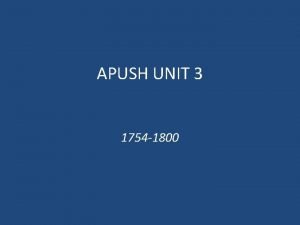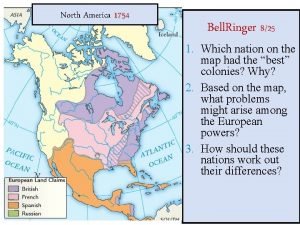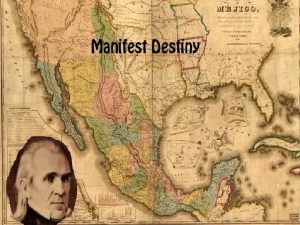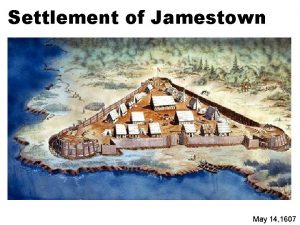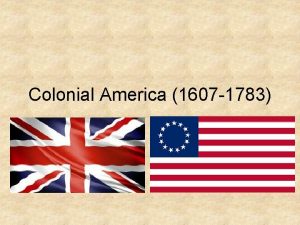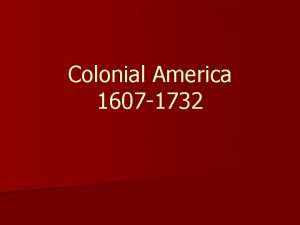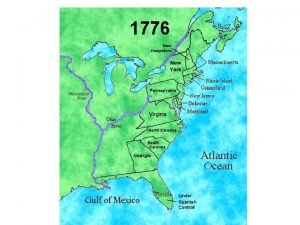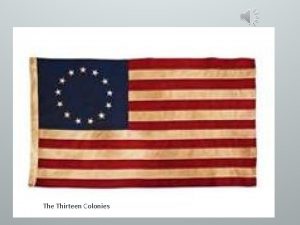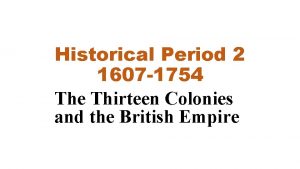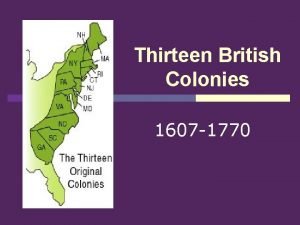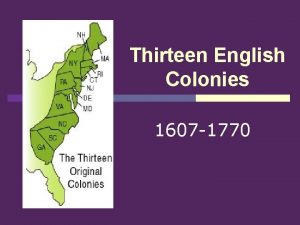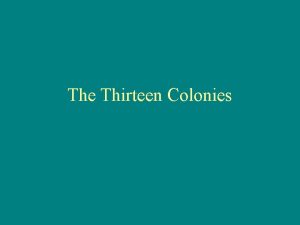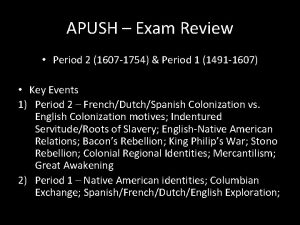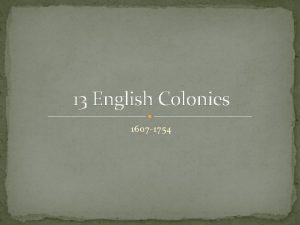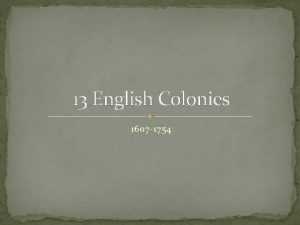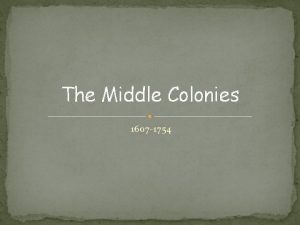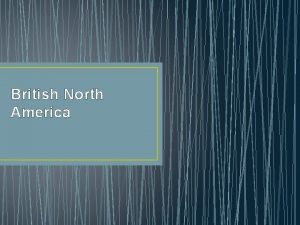Period 2 1607 1754 The Thirteen Colonies and














- Slides: 14

Period 2: 1607 -1754 The Thirteen Colonies and Colonial Society

Jamestown, Virginia (1607) King James I chartered a joint-stock company, Virginia Company, to found a permanent English settlement in North America Jamestown became the first settlement Problems: swampy land, disease outbreak, lazy settlers, and conflict with American Indians Jamestown was on the verge of collapsing, so King James took over the control of the colony, now known as, Virginia.

Thirteen Colonies New England Colonies Middle Colonies Southern Colonies

New England Colonies Contained Massachusetts, Rhode Island, Connecticut and New Hampshire Smallest colonial region Mild, short summers and cold, long winters. Rocky, poor soil Industrial colonies- fishing, lumber, shipbuilding, and manufacturing Religions- Puritan and the Dissenters (didn’t agree with Puritan beliefs) Fact: 14 out of 56 men who signed the Declaration of Independence were from the New England colonies

Middle Colonies Contained New York (named after Duke of York), New Jersey (named after English Iles of Jersey), Delaware (Peter Minuit), and Pennsylvania (William Penn) Rich and fertile farmland Considered the “Breadbasket Colonies” due to their variety of grain Produced- wheat, barley, rye, beef, pork and butter Religions- Quakers, Protestants, and Catholics

Southern Colonies Contained Virginia (John Smith), Georgia (James Oglethorpe), North & South Carolina and Maryland (Lord Baltimore) Georgia was a colony strictly for debtors to be isolated The climate is hot and humid in the long summers Plantations Produced- tobacco, rice, corn, indigo, sugarcane, and cotton Religions- Protestant and Catholic Fact: George Rogers Clark, Thomas Sumter, Francis Marion, Patrick Henry, Charles Lee, Thomas Jefferson, and George Washington were important men who lived in the Southern Colonies

Religion Puritans Separatists Quakers Catholics

Puritans Were Calvinists (predetermined if you go to heaven or hell when you are born) Wanted to purify the Anglican Church of all Catholic rituals Believed only “visible spirits” should be admitted to church membership Famous Puritan- John Winthrop (helped found Massachusetts Bay Colony)

Separatist Extreme Puritans who wanted to break away from the Church of England They harassed people and wanted to leave England Famous separatists- Roger Williams (founded Rhode Island) and the Pilgrims (Plymouth)

Quaker Pacifists who didn’t pay taxes for the church, didn’t take oaths, and shared rights with women Famous Quaker- William Penn (established Pennsylvania as a safe haven for Quakers and paid American Indians for their land) “Holy Experiment”- religious toleration for many different religions and obtain a profit

Catholics Maryland was founded by Lord Baltimore as a safe haven for Catholics Maryland Acts of Toleration- Guaranteed religious toleration for Catholics, but did not extend to non -Christians

Education Elementary Education- emphasized learning the Bible and established grammar schools for boys to move on to college. Higher Education- led to college for boys College of New Jersey (Princeton) for Presbyterians King’s College (Columbia) for Anglicans Rhode Island College (Brown) for Baptists Queens College (Rutgers) for the Reformed Dartmouth College for the Congregationalists

Trade Triangular Trade Route: Merchant ships will start in New England ports and carry rum across the Atlantic to West Africa Rum is then traded for captive Africans to be taken through the Middle Passage, where it was rough on the Africans on board, to go to the West Indies From the West Indies, sugarcane is brought to the New England ports to make rum for the route to continue. Colonial Trade: colonists would trade weapons or manufactured goods with the American Indians for furs and certain goods.

Government The colonial government was a limited and partial democracy Only privileged white men were allowed to vote Members of the colonial assemblies and governors’ councils represented either a privileged elite or the larger society of the plain citizens The English colonies were showing tendencies toward democracy and self-government that made their political system unusual for the time
 New england middle and southern colonies comparison chart
New england middle and southern colonies comparison chart Original thirteen colonies
Original thirteen colonies Thirteen colonies
Thirteen colonies 50 nifty united states from 13 original colonies
50 nifty united states from 13 original colonies New york and philadelphia both brainpop
New york and philadelphia both brainpop French and indian war
French and indian war 1754 lulu love
1754 lulu love 1754 to 1800 apush
1754 to 1800 apush North america 1754 map
North america 1754 map Expansion of the united states of america 1607 to 1853 map
Expansion of the united states of america 1607 to 1853 map Các chữ số la mã
Các chữ số la mã May 14 1607
May 14 1607 1783-1607
1783-1607 1732-1607
1732-1607 1776-1607
1776-1607
